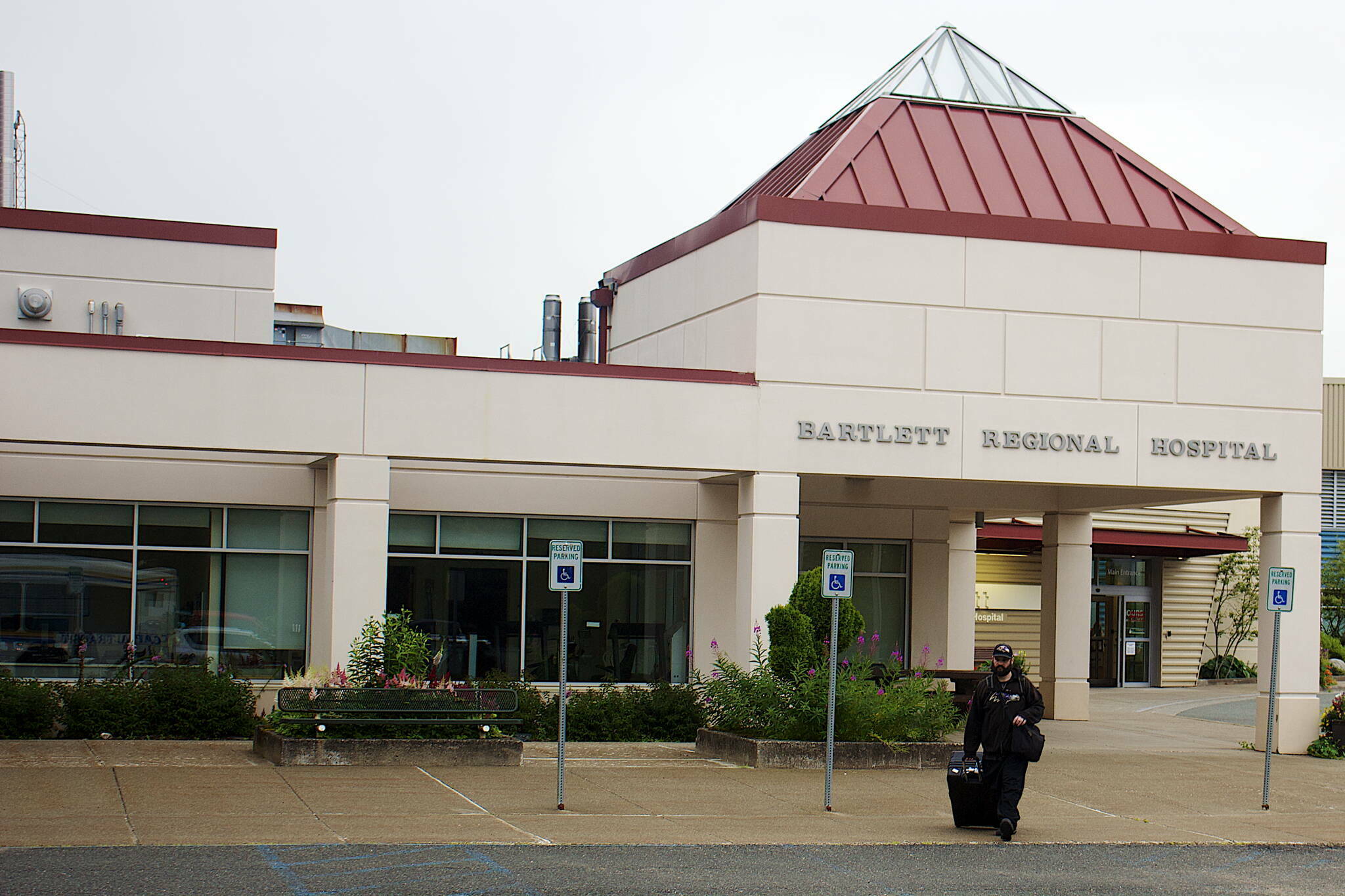Juneau’s city-owned Bartlett Regional Hospital (BRH) is in the news, presenting our community with yet another challenging situation.
According to hospital officials, over the last five years, competitive pressures and inflationary increases have contributed to a deterioration in financial performance. Additionally, the pandemic accelerated the movement of medical treatments to out-patient facilities, which insurers reimburse at much lower rates.
Our hospital is losing about $1 million per month and without trimming costs or finding other revenue sources, the hospital will run out of cash and could be forced to close within three years.
While it’s possible that the hospital could be sold, it’s doubtful it would survive in the same configuration or offer the same services as it does now.
And therein lies the conundrum facing city leaders.
Selling the hospital or curtailing non-core programs and services will resolve the immediate financial challenges now but present less quantifiable social service challenges in the future.
Community outreach events on June 4 and June 10 generated significant public testimony about BRH programs and services being considered for elimination or reduced service. Those programs include hospice and home health services; Rainforest Recovery Center (a 16-bed residential and outpatient treatment program); Bartlett Outpatient Psychiatric Services; Crisis Observation Services Crisis Residential and Stabilization Services for Adults and Adolescents; and the Aurora Behavioral Health Center (serving autism patients).
While these services are deemed non-core programs, all received passionate support as high-need services without suitable local alternatives. Annual losses attributed to each program ranged from $813,000 for hospice and home care to almost $4 million for Rainforest Recovery Center.
The increasing competition from Southeast Alaska Health Consortium (SEARHC) is also a factor. Originally funded by the Indian Health Service and intended to provide medical care to the Native community, SEARHC has aggressively expanded its facilities throughout the region. With over 1,200 employees, they now serve 27 communities throughout Southeast Alaska including Juneau. In Sitka and Wrangell, SEARHC operates both local hospitals after financial pressures compelled city governments to cede control.
SEARHC now offers pharmacy services, dental care, primary care, specialty care, imaging, and laboratory services to all Southeast residents, not just Native patients. Their urgent care clinic in Juneau competes directly with BRH’s emergency room. SEARHC’s newly expanded facilities in Juneau may soon compete with the hospital’s short-stay surgery center – one of Bartlett’s largest revenue producers.
Some testifiers noted that SEARHC does not compete with other medical providers on a level playing field. Indian Health Service funding amounted to about $85 million last year, which SEARHC received through the Alaska Tribal Health Compact to treat Native clients. However, SEARHC also billed over $100 million to Medicaid and Medicare for many of those patients, effectively “double-dipping” to add to their profit margin.
BRH statistics reflect that 50% of Rainforest Recovery Center patients are SEARHC beneficiaries, but the hospital receives no reimbursements from SEARHC for their care. SEARHC can choose to “cherry-pick” more lucrative medical services to offer while deciding to avoid the financial drag of services that may be money-losers.
SEARHC’s 15-person board includes representatives from all over the region. Neither SEARHC’s board meetings nor its records are open to the public except for limited financial disclosures.
In contrast, Bartlett Regional Hospital is a public entity with full transparency in all its operations. BRH board members, appointed by the City and Borough of Juneau Assembly, are from Juneau and must be responsive directly to citizens. BRH is therefore more likely to address Juneau’s health concerns and challenges and tailor its services to meet the specific needs of the local population it serves.
There’s no guarantee that any Bartlett Regional Hospital medical service now being provided will be offered if the hospital is sold to SEARHC or any other outside entity. Only the citizens of Juneau and their elected leaders can ensure that these services are provided and funded.
This is just one of several challenges facing our community. The fate of our hospital should be a top priority for our current Assembly, and any new members elected on Oct. 1.
• After retiring as the senior vice president in charge of business banking for KeyBank in Alaska, Win Gruening became a regular Opinion Page columnist for the Juneau Empire. He was born and raised in Juneau and graduated from the U.S. Air Force Academy in 1970. He is involved in various local and statewide organizations. Columns, My Turns and Letters to the Editor represent the view of the author, not the view of the Juneau Empire. Have something to say? Here’s how to submit a My Turn or letter.

